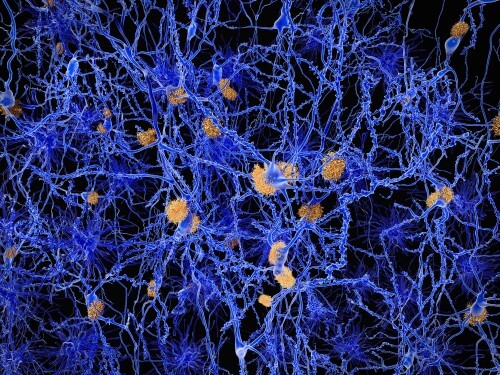Researchers from Tel Aviv University, the Technion, and Harvard have identified a biological marker in the blood that links to Alzheimer's disease, and may be used to develop a reliable diagnosis with a simple blood test * "We hope that in the future it will be possible to use our discovery to develop a simple blood test to diagnose the severe disease already in its early stages," says the leader of the study, Prof. Ilana Gozes

Currently, diagnosing Alzheimer's disease is a long and complex process. For the most part, the diagnosticians use subjective tests to test memory, cognitive and functional abilities, and behavioral changes; In special cases, dedicated and expensive brain imaging is also performed (which is not offered in Israel at all), and even invasive tests of the cerebrospinal fluid.
A new discovery by researchers from Tel Aviv University, the Rambam Medical Center and Harvard University in the USA may lead to a significant breakthrough in the diagnosis of Alzheimer's disease. This is a biological marker of the disease - a substance whose presence in the blood at certain levels characterizes Alzheimer's patients. "We hope that in the future it will be possible to use our discovery to develop a simple blood test to diagnose the serious disease already in its early stages," says the leader of the study, Prof. Ilana Gouzes, head of the Lilly and Abraham Gildor Chair for Tumor Factor Research, head of the Elton Laboratory for Molecular Neuroendocrinology, former head Adams Center for Brain Research, from the Faculty of Medicine and Sagol School of Neuroscience at Tel Aviv University.
Other partners in the study were: Anna Melishkevich from Tel Aviv University, Prof. Yehudit Aharon-Peretz from the Rambam Medical Center in Haifa, and Prof. Gad Marshall, Prof. Raiza Sperling and Prof. Aaron Schultz from Harvard University. The study was published in November 2015 in the Journal of Alzheimer's Disease
Relationship between blood protein and cognitive abilities
The new research focused on the ADNP protein, which was discovered in Prof. Guzes's laboratory about 15 years ago. "In previous studies, we showed that the protein and its derivatives protect the brain from various diseases," says Prof. Gouzes. "In the current study, we decided for the first time to examine whether there is a relationship between ADNP and its manifestations in the subject's blood, and his cognitive abilities."
The fascinating study was divided into three different parts:
In the first experiment, a group of 40 adult, educated and healthy people were tested in Boston, USA. Among other things, the subjects underwent IQ tests, and blood samples taken from them were sent to a laboratory at Tel Aviv University. The surprising result: the higher the subject's IQ, the higher the level of ADNP in his blood fluid.
In the second experiment, also conducted in Boston, the same 40 subjects were exposed to intelligent imaging of amyloid deposits in the brain. "Amyloid is a protein substance that accumulates in the brains of Alzheimer's patients, but is sometimes found, in smaller amounts, in the brains of healthy people as well," explains Prof. Gouzes. "We wanted to make a comparison between the amount of amyloid in the brain and the expression of ADNP in the blood of the subjects." The laboratory tests carried out at Tel Aviv University again brought up a connection between the findings: the higher the amount of amyloid deposits in the brain, the lower the RNA genetic material associated with ADNP was recorded in the blood cells.
"The two experiments, which focused on elderly but healthy people, showed a correlation between the level of ADNP and its expressions in the blood and characteristics related to the subject's cognitive ability," states Prof. Guzes. "In other words: the better the cognitive ability, the higher the ADNP level."
A jump in the biomarker in the blood of Alzheimer's patients
In the third experiment, carried out at the Rambam Medical Center in Haifa, people with Alzheimer's were also tested for the first time. A total of 43 adult subjects participated in the study in Haifa - 11 healthy people with normal cognition, 15 with mild cognitive impairment, and 17 Alzheimer's patients. And here a sensational surprise awaited the researchers: "In the white blood cells of the Alzheimer's patients, we found an 8 times greater amount (!) of RNA expressing ADNP compared to the other subjects," says Prof. Gozes. "Even if we cannot yet explain the spike, there is no doubt that it is a very clear biological marker of Alzheimer's disease. Such a biomarker may serve as a basis for developing a simple blood test to diagnose Alzheimer's, and perhaps more importantly: to predict the disease long before it breaks out. Such early detection will allow subjects to immediately begin preventive treatment, which will delay and moderate the disease."
According to Prof. Guzes, the research has been conducted so far in small groups of subjects, so sweeping conclusions cannot yet be drawn from it. Now the researchers intend to expand the experiments to additional populations.
